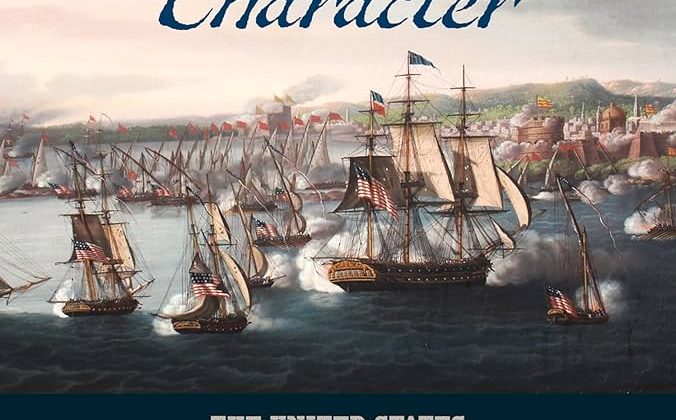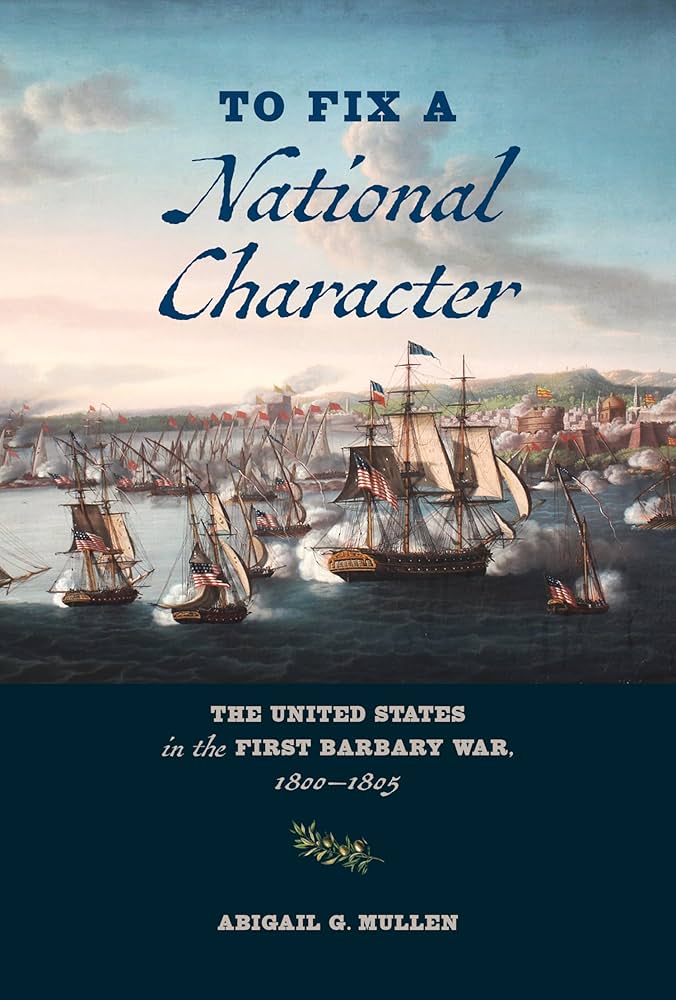

Abigail G. Mullen is Assistant Professor of Naval History and Digital Methods at the United States Naval Academy. This interview is based on her new book, To Fix a National Character: The United States in the First Barbary War, 1800–1805 (Johns Hopkins University Press, 2024).
JF: What led you to write To Fix a National Character?
AM: The short answer is that I read a few histories of the First Barbary War that made me ask, “OK, but really, what happened in this war?” I had been introduced to a part of the war through some research on Stephen Decatur, and I wanted to know more about it. I was initially very interested in how the war shaped the early officer corps of the U.S. Navy, but then I started to realize that the diplomatic piece of the story of the First Barbary War was just as important. So then I wrote that story alongside the naval part of the story.
JF: In 2 sentences, what is the argument To Fix a National Character?
AM: To Fix a National Character argues that the United States’ main goals in the First Barbary War were twofold: to enter the community of nations in the Mediterranean as a full-fledged member, and to defeat Tripoli. Because these two goals often conflicted with each other, each person involved in the First Barbary War had to decide for himself which goal he was going to prioritize and how he was going to enact those priorities in a situation where the resources were scarce and the instructions from superiors were even scarcer.
JF: Why do we need to read To Fix a National Character?
AM: You should read To Fix a National Character because it enriches our understanding of a war that often gets relegated to one or two sentences in history books. It also explains the First Barbary War, the United States’ first major conflict with Islamic states, without an inappropriate emphasis on the ideological differences between the two states. It reminds us of the underwhelming origins of the U.S. Navy and State Department, which may also help us consider our American past with humility and nuance.
JF: Why and when did you become an American historian?
AM: I don’t know exactly when I became an American historian, but I can probably trace it to a class I took as a senior in college on the early national era of the United States. That’s where I really fell in love with the U.S. Navy. For a while I would have considered myself strictly a naval historian who studied the American navy, but as I’ve grown as a historian I’ve expanded out into diplomacy and now into culture and society in the United States as well.
JF: What is your next project?
AM: My next monograph-length project—very much in its nascent stages—follows the family of one of the characters in To Fix a National Character. Henry Wadsworth, a U.S. midshipman who was killed in the First Barbary War, was part of a remarkable Maine family. Most of the scholarship on the Wadsworths focuses on its connection to Henry’s nephew, Henry Wadsworth Longfellow. I’d like to unpack more of the Wadsworths’ history on their own terms, not just in relation to the famous author.
JF: Thanks, Abigail!